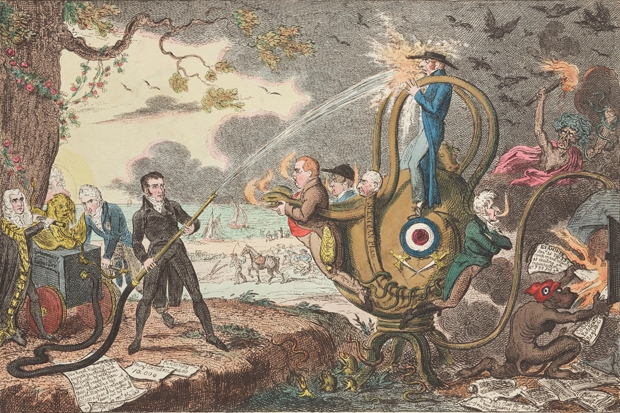The whole idea of capitalism, according to Enlightenment philosophers, was that it created a positive spiral of moral behaviour. ‘Concern for our own happiness recommends us to the virtue of prudence,’ wrote Adam Smith. ‘The profits of commerce,’ according to David Hume, carry us towards a state in which ‘the tempers of men, as well as their behaviour, refine apace.’ In the first chapter of Forging Capitalism, Ian Klaus encapsulates this theory as an 18th-century artist might have titled an allegorical painting of intertwined figures: ‘Commerce encouraging Virtue, and Virtue harnessing Commerce.’
But that’s not really the way it was, Klaus goes on to argue — and certainly not the way it is today, he implies. In this study of the development of high finance and international trade in England from the end of the Napoleonic wars in 1814 to the outbreak of the first world war a century later, the author tells us that the gentlemanly capitalism we were brought up to believe in was, if not wholly mythical, a sideshow in a noisy cavalcade of fraud, theft and what Walter Bagehot called ‘ingenious mendacity’ on all sides. ‘If polite Victorians — honest, sexless, Christian — still live in your historical cupboard, throw them out.’
Instead, he says, we should return to the pages of Dickens and Trollope to remind ourselves that there were wrong ’uns at every level and turn of 19th-century commerce, from crooked agents, clerks, brokers and jobbers to ‘lords on the take, knights on the make’ — and that ‘the thieves were often difficult to distinguish from the legitimate’, to the cost of the ill-informed and gullible investor and customer. This version of capitalism’s history is all about trust, or lack of it: market developments are driven by a continuing battle against dishonesty, in which ‘participants… are increasingly forced to refine their means of trust’.









Comments
Join the debate for just £1 a month
Be part of the conversation with other Spectator readers by getting your first three months for £3.
UNLOCK ACCESS Just £1 a monthAlready a subscriber? Log in